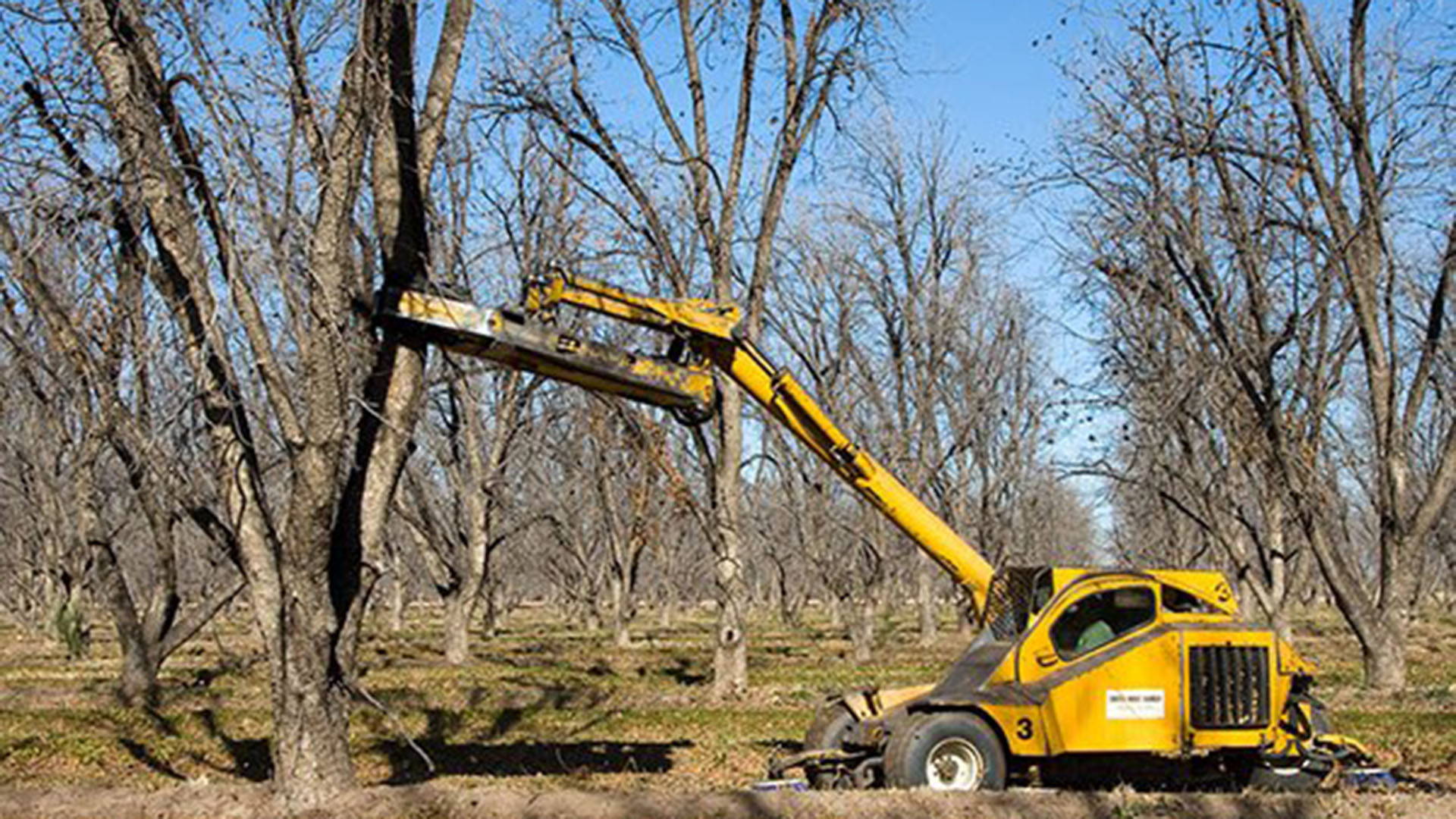 A harvesting machine pulls pecans from trees at Green Valley Pecan Company in Sahaurita.
A harvesting machine pulls pecans from trees at Green Valley Pecan Company in Sahaurita.
The outskirts of Kingman, Arizona, used to be a place where pilots would train and recreationists tested their all-terrain vehicles.
The dry and empty landscape has since morphed into something much more green that supports pistachio and almond orchards, and garlic and potato fields in a climate similar to California's Central Valley. The crops are fed by groundwater that also serves the city of Kingman.
The Arizona Department of Water Resources this week put a limit on the amount of land that can be watered, designating the Hualapai Valley as an irrigation non-expansion area. That means anyone who hasn't farmed more than 2 acres there during the past five years can't.
It's the first such designation in Arizona in four decades — highlighting struggles around the U.S. as water supplies dwindle and tensions grow between farmers and cities. Just last week, a board that advises the Kansas governor voted to make a historic recommendation to protect the Ogallala aquifer, which has been tapped for decades to irrigate crops in an arid region.
In Arizona, elected officials supported the designation, saying they want to ensure residents have access to affordable water in the future.
Some residents saw the designation as an assault on their private property rights, and farmers felt they were targeted as water guzzlers despite using what they say is the best available technology to conserve.
“It's really tricky," said Kathy Tackett-Hicks, a consultant for Peacock Nuts, LLC, which grows pistachio trees on roughly 5 square miles (13 square kilometers) in the valley. “No one is totally right, and no one is totally wrong.”
The Hualapai Valley stretches more than 60 miles (97 kilometers) from where the Colorado River exits the Grand Canyon to the south and east of Kingman, taking in small, unincorporated communities in Mohave County. According to some estimates, nearly 22 square miles (57 square kilometers) are irrigated.
State Water Resources Director Tom Buschatzke said the rate at which the groundwater is being recharged isn't keeping up with what's being taken out. Without action, the department said, one in 20 wells would no longer produce in 100 years. Groundwater levels are expected to drop regardless.
The new designation doesn’t restrict the amount of water that can be used but rather prohibits irrigating any more land than has been in production over the past five years. The restriction doesn’t apply to people who want to grow gardens or farm on less than 2 acres.
Property owners with larger pieces of land who can show they've made a substantial capital investment toward farming also could be exempt.
Meters will have to be installed on wells equipped to pump more than 35 gallons (132 liters) a minute, which applies mostly to commercial operations. The amount of water used also must be reported to the state.
Groundwater use generally is unregulated in Arizona outside of major metropolitan areas. Elected officials in Mohave County first requested the irrigation non-expansion area designation in 2016 to regulate what they expected to be rapid and dramatic growth in corporate agriculture in the valley.
The land has been advertised as ideal for growing — with little regulation, established wells, a good climate, and proximity to Interstate 40 and rail lines.
The Water Resources Department twice declined requests for the designation before agreeing to consider it this year because new data was available. The department held public hearings and solicited comments before Buschatzke signed off on the designation Monday.
Mohave County Supervisor Jean Bishop said the rapid growth in farming changed the perspective that the aquifer can produce indefinitely. She said she appreciates technological advances in farming but said it's still unsustainable over the long term.
“It’s been a long, hard road," she said of advocating for limits.
Tackett-Hicks and the Arizona Farm Bureau said they're disappointed and don't believe the hydrology justifies the designation. They said local growers have been good stewards and are economic drivers in the county.
“This decision limits any potential growth of this industry, thereby limiting the future success of Kingman and Mohave County," said Chelsea McGuire, the bureau's government relations director.
The designation won't be final until after a 30-day period in which a motion for rehearing or review could be filed with the state. So far, nothing has been filed.
Arizona has two other irrigation non-expansion areas near Joseph City and in the Harquahala Valley that straddles Interstate 10 west of Phoenix.
They were established more than 40 years ago. Another near Douglas recently was expanded to regulate more groundwater uses.

By submitting your comments, you hereby give AZPM the right to post your comments and potentially use them in any other form of media operated by this institution.